
Yuri Vladimirovich Andropov was a Soviet politician who was the sixth leader of the Soviet Union and the fourth General Secretary of the Communist Party of the Soviet Union, taking office in late 1982 and serving until his death in 1984.
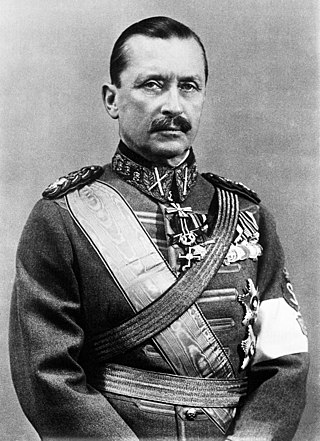
Baron Carl Gustaf Emil Mannerheim was a Finnish-Swedish military commander, aristocrat, and statesman. He served as the military leader of the Whites in the Finnish Civil War (1918), as Regent of Finland (1918–1919), as commander-in-chief of the Finnish Defence Forces during the period of World War II (1939–1945), and as the sixth president of Finland (1944–1946). He became Finland's only field marshal in 1933 and was appointed honorary Marshal of Finland in 1942.

The Main Directorate of the General Staff of the Armed Forces of the Russian Federation, formerly the Main Intelligence Directorate, and still commonly known by its previous abbreviation GRU, is the foreign military intelligence agency of the General Staff of the Armed Forces of the Russian Federation. The GRU controls the military intelligence service and maintains its own special forces units.
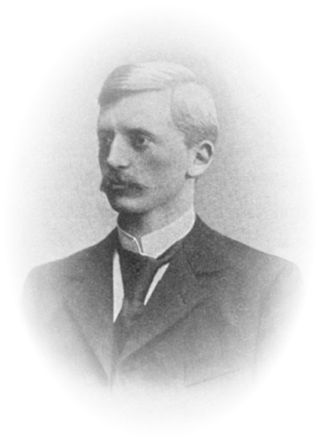
Eugen Waldemar Schauman was a Finnish nationalist activist and nobleman. In 1904, Schauman assassinated Nikolai Bobrikov, the Governor-General of Finland.
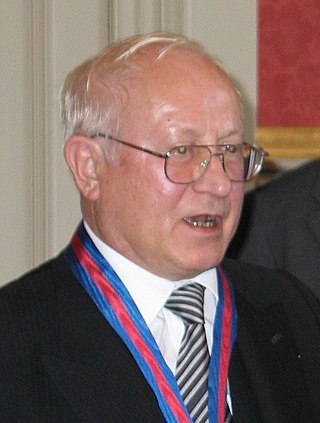
Oleg Antonovich Gordievsky, CMG is a former colonel of the KGB who became KGB resident-designate (rezident) and bureau chief in London.

The First Main Directorateof the Committee for State Security under the USSR council of ministers was the organization responsible for foreign operations and intelligence activities by providing for the training and management of covert agents, intelligence collection administration, and the acquisition of foreign and domestic political, scientific and technical intelligence for the Soviet Union.
Anatoliy Mikhaylovich Golitsyn CBE was a Soviet KGB defector and author of two books about the long-term deception strategy of the KGB leadership. He was born in Pyriatyn, USSR. He provided "a wide range of intelligence to the CIA on the operations of most of the 'Lines' (departments) at the Helsinki and other residencies, as well as KGB methods of recruiting and running agents." He became an American citizen by 1984.

The Finnish Security and Intelligence Service, formerly the Finnish Security Police and Finnish Security Intelligence Service, is the security and intelligence agency of Finland in charge of national security, such as counter-intelligence and counter-terrorism, under the jurisdiction of the Ministry of the Interior. The agency had a distinct role during the Cold War in monitoring communists as well as in the balance between Finnish independence and Soviet appeasement. After the 1990s, Supo has focused more on countering terrorism and in the 2010s, on preventing hybrid operations.

Pavel Mikhailovich Fitin was a Soviet intelligence officer (INO–GUGB–NKVD–NKGB) who was the director of Soviet intelligence during World War II, identified in the Venona cables under the code name "Viktor."

Ahti Kalle Samuli Karjalainen was a Finnish economist and politician. He was a member of the Agrarian League and served two terms as Prime Minister of Finland. He is, however, better known for his period as Minister of Foreign Affairs of Finland. Karjalainen is considered one of the most influential figures in post-war Finnish politics. Like President Urho Kekkonen, Karjalainen attached great importance to Finland's relationship with the Soviet Union, and was at one point considered to be Kekkonen's likely successor until alcoholism affected his later career.
Vladimirov or Vladimirova is a Russian and Bulgarian surname, that is derived from the male given name Vladimir and literally means Vladimir's.
Yuri Ivanovich Nosenko was a putative KGB officer who ostensibly defected to the United States in 1964. Controversy arose as to whether or not he was a KGB "plant," and he was held in detention by the CIA for over three years. Eventually, he was deemed a true defector. After his release he became an American citizen and worked as a consultant and lecturer for the CIA.
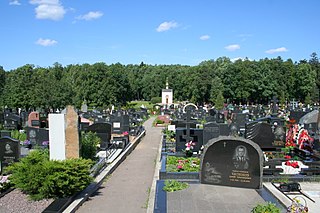
The Troyekurovo Cemetery, alternatively known as Novo-Kuntsevo Cemetery, is a cemetery in Moscow, Russia.

The Finnish Anti-Fascist Committee, also known by its Finnish abbreviation SAFKA, is a radical political organisation operating in Finland, founded in November 2008, but never registered. According to the Chairperson Johan Bäckman the committee has twenty activists and about a hundred supporters.
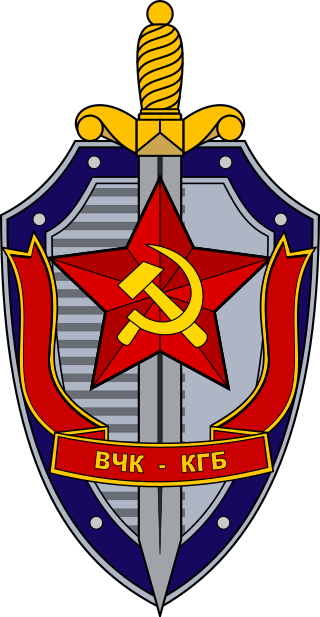
The Committee for State Security, abbreviated as KGB, was the main security agency of the Soviet Union from 1954 to 1991. It was the direct successor of preceding Soviet secret police agencies including the Cheka, OGPU, and NKVD. Attached to the Council of Ministers, it was the chief government agency of "union-republican jurisdiction", carrying out internal security, foreign intelligence, counter-intelligence and secret police functions. Similar agencies operated in each of the republics of the Soviet Union aside from the Russian SFSR, where the KGB was headquartered, with many associated ministries, state committees and state commissions.
A kotiryssä was a Soviet or Russian contact person of a Finnish politician, bureaucrat, businessman or other important person.
Felix Karasev or Feliks Dmitriyevich Sutyrin was a KGB colonel and Soviet diplomat. He served three times in Finland between 1963 and 1992. His memoir Naapurinpojan muistelmat was published in Finnish in 1998.

Aleksei Stepanovich Belyakov was a Soviet diplomat and ambassador to Finland 1970–71 and the leader of the European section of the Communist Party of the Soviet Union.

Toivo Antikainen was a Finnish-born communist and a military officer of the Soviet Red Army. He was one of the founders and leaders of the exile Communist Party of Finland. Antikainen died in suspicious circumstances in the Soviet Union in 1941.

Klaus Mattias Törnudd is a Finnish diplomat and researcher in politics and international politics. He has been a professor and ambassador for political science.














